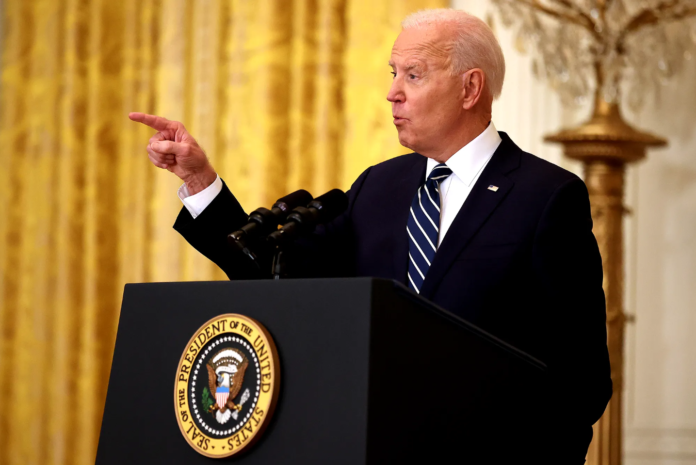In a move sparking frustration among climate advocates, U.S. President Joe Biden is reportedly planning to skip the critical United Nations climate summit, COP28, set to begin this week in Dubai. As the world faces the heat of an almost record-breaking year, Biden’s absence at the summit is a blow to those urging aggressive action against the climate crisis.
First reported by The New York Times, Biden’s decision to miss COP28, amidst escalating global temperatures and environmental challenges, is particularly striking given the U.S.’s status as the largest historical emitter of greenhouse gases. Under Biden’s leadership, the U.S. has been on track to extract record levels of oil and gas this year, contradicting the urgent need to phase out fossil fuels.
Despite attending the previous two U.N. climate summits, Biden’s presence didn’t translate into significant commitments to curtail fossil fuel usage. His administration has been criticized for its continued approval of large-scale fossil fuel projects, like the Willow drilling venture in Alaska, expected to generate massive carbon dioxide emissions annually. In fact, Biden’s first two years saw more than 6,400 permits for oil and gas drilling approved, surpassing the Trump administration’s record.
While Biden’s schedule remains open during COP28’s commencement, he appears to be focusing on domestic events, including meeting with Angolan President João Manuel Gonçalves Lourenço and participating in the White House Christmas tree lighting. John Kerry, Biden’s climate envoy, will represent the U.S. at the summit.
The backdrop of COP28 is equally contentious, with host United Arab Emirates, a leading global oil producer, reportedly using the summit to negotiate oil and gas deals. This intersection of business and climate advocacy raises questions about the commitment of world leaders to genuine climate solutions. Sultan al-Jaber, the CEO of Abu Dhabi National Oil Company and president of COP28, symbolizes this conflict of interest.
The presence of oil and gas industry lobbyists at the U.N. climate talks, documented by the Kick Big Polluters Out coalition, further complicates the path to effective climate action. Their influence over the past two decades has been significant in hindering progress toward reducing fossil fuel dependency.
Kaisa Kosonen from Greenpeace International highlights the urgency of the situation, stating, “COP is an opportunity to secure our survival, not to strike business deals that fuel the crisis.” With all the solutions for a renewable energy transition at hand, the necessity for governments to regulate fossil fuels out of the equation has never been more apparent.
As the world looks to COP28 for decisive action, Biden’s absence and the summit’s backdrop of oil deals underscore the challenges in aligning global climate policy with the reality of the environmental crisis.



